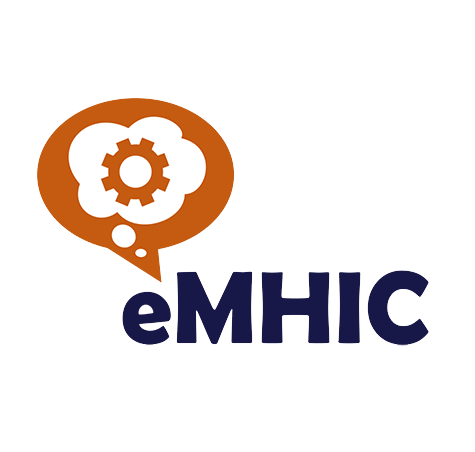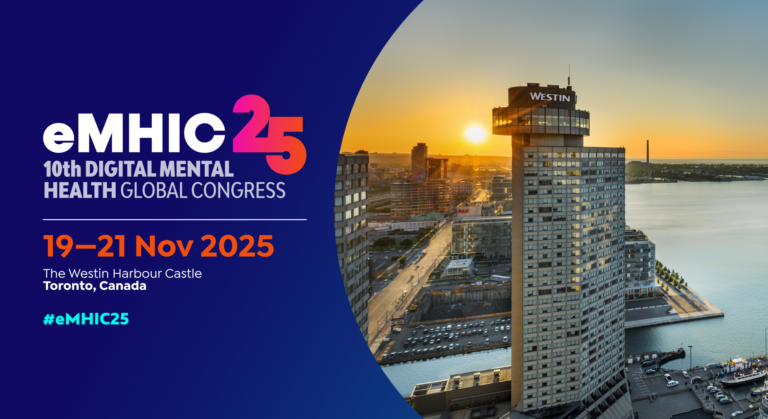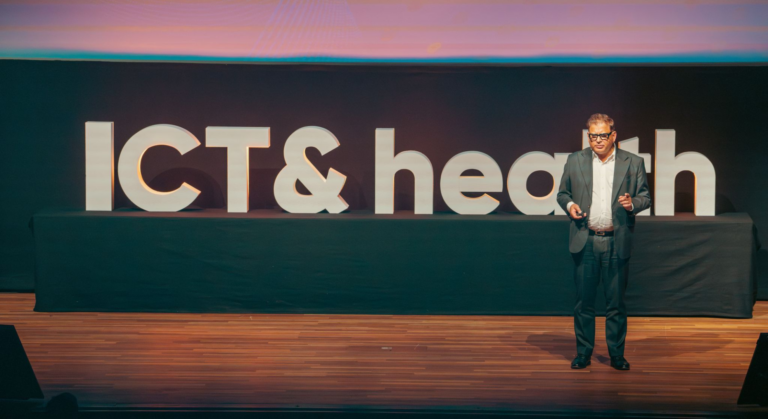As a pioneering force in transforming mental health care, eMHIC continues to make significant strides on the global stage. From shaping conversations at prestigious events to driving innovation in humanitarian settings, eMHIC is at the forefront of reshaping how the world perceives, delivers, and embraces digital to improve access to mental health care.
Recent engagements by eMHIC’s Executive Director, Anil Thapliyal, highlight the organization’s commitment to addressing global mental health challenges with innovative and practical solutions. These include participating in a United Nations retreat in New York, USA, focused on mental health in humanitarian settings, UNICEF Expert Network on implementing digital mental health solutions for children, adolescents and youth to key contributions in New Zealand by way of a Thought Leadership speaking engagement on “mental health care in 2049” and the Digital Mental Health Summit in New Zealand Parliament.
Driving Change at the United Nations Retreat on Mental Health in Humanitarian Settings
It was a profound honor for Anil to be among 40 expert international delegates invited to a three-day retreat convened by United Nations Deputy Secretary-General Amina J. Mohammed from November 1–3, 2024. This exclusive event, hosted in collaboration with the Wellcome Trust and the United Nations Office for Partnerships, focused on scaling mental health and psychosocial support (MHPSS) services in humanitarian settings.
The retreat highlighted staggering statistics: in 2024, over 300 million people required humanitarian assistance, with 66 million experiencing mental health conditions. These figures illustrate the pressing need for systemic action to prioritize MHPSS as an integral component of humanitarian aid. As UN Deputy Secretary-General Mohammed emphasized, “Despite the profound and urgent needs for MHPSS, it often remains a secondary consideration, with needs far surpassing available resources. We’ve got to do things differently…this is a huge moment for a reset.”
The Hon. Julia Gillard AC, former Prime Minister of Australia and Chair of the Wellcome Trust added that “local priorities and people’s lived experience of mental health should set the agenda,” reinforcing the need for culturally sensitive and community-driven solutions.
Over three days, policymakers, researchers, and practitioners from organizations such as WHO, UNICEF, MSF, Spotify, Google, and War Child International collaborated to investigate vital mental health issues and champion evidence-based interventions for affected communities and the dedicated individuals serving them. The retreat concluded with a call to action around aligning tangible outcomes to strengthen partnerships, identify critical gaps, and accelerate scalable MHPSS solutions globally.
In recognition of her bold leadership, eMHIC honored UN Deputy Secretary-General Mohammed with a Korowai, a traditional Māori cloak symbolizing mana, protection, and skill.
UNICEF Expert Network: Implementing Digital Mental Health Solutions for Children, Adolescents, and Youth
eMHIC is honored to be a key member of UNICEF’s Expert Network, dedicated to overcoming policy and programmatic challenges in implementing digital mental health solutions for children, adolescents, and youth. This collaborative effort spans diverse countries and contexts, with a particular emphasis on low-to-middle-income nations and the unique needs of vulnerable and underserved youth populations.
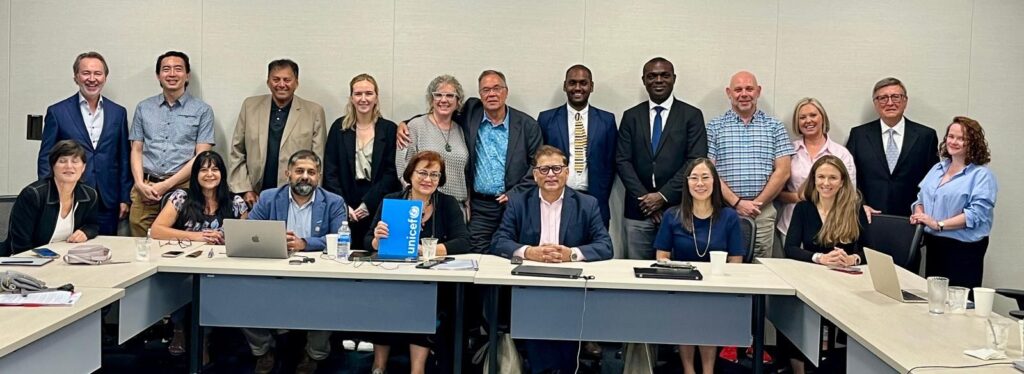
By leveraging global expertise, the network aims to design and implement impactful, inclusive, and scalable digital mental health initiatives that address the mental health disparities that young people face worldwide. eMHIC is proud to contribute its insights and experience to this vital mission, fostering innovation and equity in mental health care for future generations.
Thought Leadership: “Mental Health Care in 2049”
The Annual Indian Newslink Business Awards, a hallmark event celebrating excellence across industries in New Zealand, set the stage for a critical discourse on the future of mental health. This year, Anil was invited to speak on “Mental Health in New Zealand by 2049.” Addressing an audience of dignitaries and thought leaders, including New Zealand Prime Minister Rt Hon Christopher Luxon and Opposition Leader Hon Chris Hipkins, Anil outlined three key pillars for change: prevalence, timely access, and consumer-centric communication.
The event also delved into diverse topics shaping New Zealand’s future, including politics, local governance, and industry innovations. Mental health was prominent amid these discussions, underscoring its universal relevance.
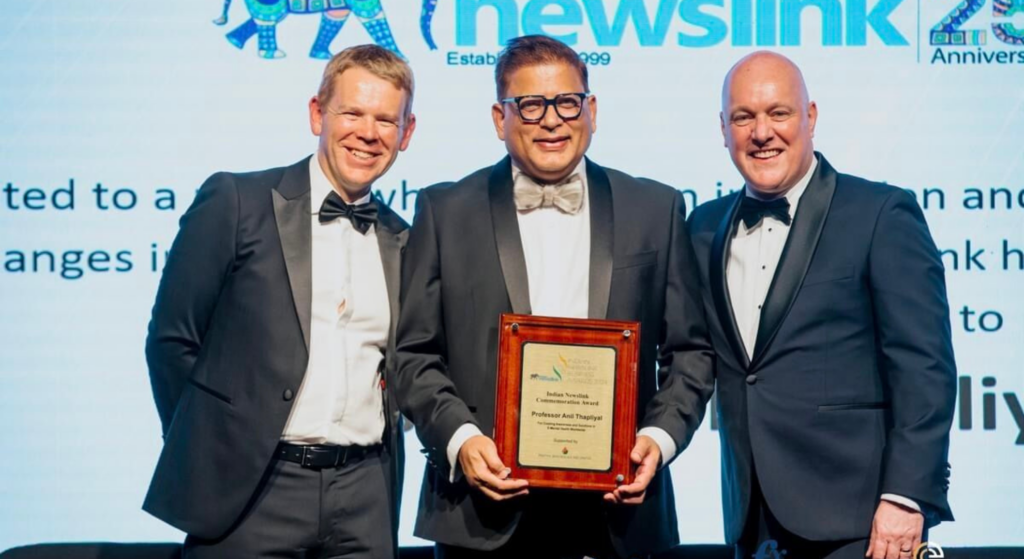
In a surprise moment of recognition, Anil was honored with a Commemoration Award for “creating awareness of digital solutions in the mental health sector worldwide.” Reflecting on the honor, he expressed his gratitude to New Zealand’s community leaders and luminaries for their unwavering support, calling it a testament to the nation’s commitment to progressive mental health solutions.
Pioneering Mental Health Conversations at the Digital Mental Health Summit in New Zealand Parliament
The journey of digital mental health innovation in New Zealand spans nearly two decades, marked by ambitious initiatives and pivotal milestones. From the launch of The Lowdown and The National Depression Initiative to Whakarongorau (The National Telehealth Service of NZ) established in 2015, New Zealand has been a global trailblazer. Yet, despite these successes, the digital mental health (DMH) landscape is still evolving to meet the diverse needs of users across the mental health care continuum—from well-being and mild-to-moderate concerns to acute mental health and suicide prevention.
The Digital Mental Health Summit, hosted on December 10, 2024, in the Grand Hall of New Zealand’s Parliament, provided an invaluable opportunity to reflect on this journey and chart a bold path forward. With Hon. Matt Doocey, NZ Minister for Mental Health, demonstrating courageous leadership in convening this event, and Ryl Jensen orchestrating its delivery with passion and precision, the summit underscored the urgency of reimagining mental health care through digital innovation.
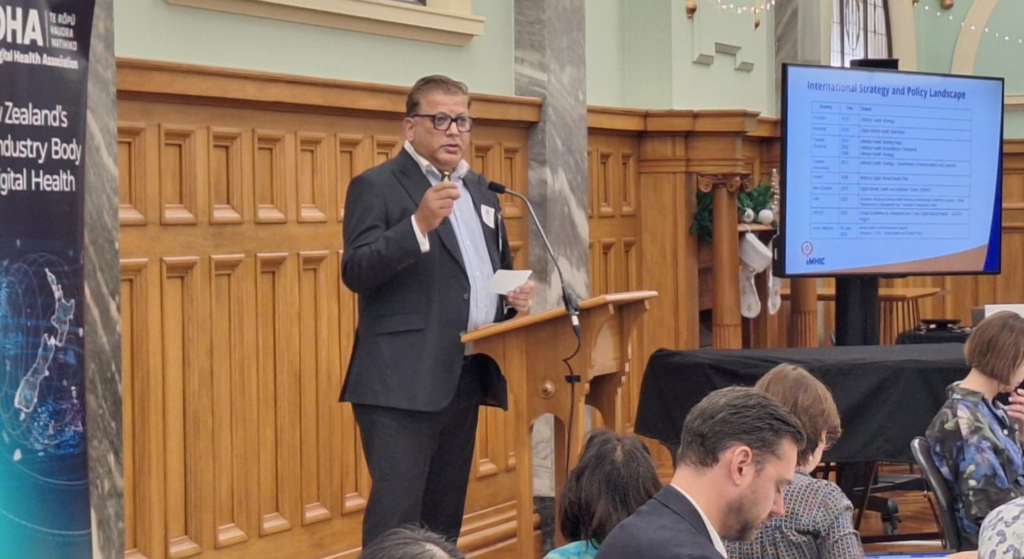
Anil was honored to join sector luminaries Chris Boyd-Skinner, Terry Fleming, and Kevin Harper in offering an international perspective on digital mental health advancements. Professor Miranda Wolpert’s challenge to delegates—embrace innovation and take calculated risks to bridge the gap between increasing demand and traditional mental health services—resonated deeply and was a highlight of the day.
While New Zealand has laid a strong foundation with initiatives like the Digital Mental and Addiction Toolkit (DMHAT) guidelines launched in 2019, the summit illuminated the need to move beyond simply layering digital solutions onto existing services. Instead, there is an opportunity to build a new paradigm and prioritize the service user, their families, and carers. If digital mental health solutions do not work for them, they do not work at all.
Collective action to fully leverage New Zealand’s existing investments and infrastructure was also a prominent take-home message from the summit. Achieving this requires:
- Building digital mental health champions for change.
- Driving workforce development in the DMH space.
- Fostering collective ownership of digital mental health innovations.
- Redesigning mental health systems to improve navigation and accessibility.
- Anchoring digital mental health firmly in policy and fostering partnerships.
The Digital Mental Health Summit was the culmination of two decades of hard work by some of New Zealand’s brightest minds. It was a moment to celebrate progress and galvanize collective commitment to getting digital mental health right by design. The message was clear: the opportunity for a paradigm shift is within reach, and New Zealand must lead the charge to create a future-ready mental health care system.
Advancing a Global Movement
From participation in global forums as significant as the UN, and UNICEF to passionately involving itself in conversations in the New Zealand Parliament, eMHIC’s leadership exemplifies a relentless drive to ensure mental health remains central to global development agendas. These events highlight a unified vision: to create equitable, accessible, and impactful mental health systems worldwide.
